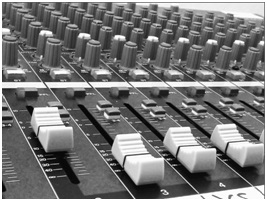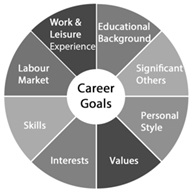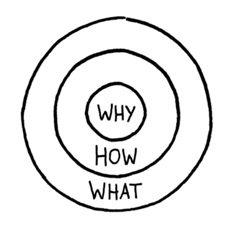A Research Paper By Irene Chen, Career Coach, TAIWAN

Work was a game I played with passion and I wanted to have a blast playing it with people I enjoyed and respected. (Ray Dalio, 2017)
Path to a Purposeful Career: How to Live a Happy and Satisfied Work Life?
I love playing video games since I was a little girl, with devices from Gameboy, Nintendo, PS, Wii to switch, and across all these different devices, Super Mario is always my favorite game for years. My parents used to joke about me as the “Queen of the Mario game” in the family. Those good old days. That’s why when I found the analogy of work from Ray Dalio during my reading, it was so personally connected. Yes, work would be a wonderful and exciting game for me which I would love to play all my life. Quite in the contrast, when I started working, the most common complaint among friends and colleagues has always been about “work”. How come work couldn’t be fun, fascinating, and charming, just like the Super Mario games I used to play?
When I brought up this game metaphor to people around me, they all gave me the look, “are you kidding me? work is so far away from games.” When it comes to working, those expressions from them are, unhappy, painful, difficult, boring, suffocating and unsatisfied, etc., which truly makes the metaphor look so weird and out of imagination. According to statistics, work would take up to one-third of a lifetime, or even longer, therefore, it truly matters to make this one-third time a happy, pleasant, and fulfilling journey. But how?
While searching for answers, I encountered the idea of coaching, something about asking questions, instead of giving solutions, interestingly, I ended up having more insights to answer this “How” question. Then I wonder, how could I leverage this coaching philosophy to help all of us live a happy and satisfying work-life? By asking good questions, as a coach did.
Below I consolidated a few questions and by asking each one of them, we could walk through stages from identifying situations, evoking awareness, clarifying understanding, figuring out obstacles, finalizing actions to take, and making a commitment to hold ourselves accountable. Let’s start the journey, bon voyage!
Coaching Lead the Path to a Purposeful Career
-
What Is Work? What Is Career?
The distinguishing line between the notion of career and work has been obscure for many people, for a long time. It is well known for the catch, “find a good job”, however, what does “good job” mean and how that would fall in the track of pursuing a great career has become a giant question mark. According to Cambridge Dictionary, a career is, “the job or series of jobs you do during your working life, especially if you continue to get better jobs and earn more money.” Here are 2 well-known indicators applied almost everywhere and to everyone, “better jobs (getting promotions, better titles, etc.)” and “more money”. I often see many people changing their jobs to get better salaries and positions and consider this is great career development. And when being asked “does changing jobs make you happier with work or give you the sense of a great career?”, most of their answers were “no”. So, what is work, and what is a career? I create an analogy of work and career to answer that, which is, “ career is like the destination to a journey while jobs/work is like the transportation you would take to arrive at the destination.” Therefore, if you constantly change your vehicles without knowing where to go (here refers to the destination), then you will get lost in the middle of nowhere. What is the “destination” in the context of a career? I would say the “purpose”, what would you work for? Some may aim at bringing changes to the world, influencing the society, making profits/money, and networking, all you can apply, and once you finalize the “purpose” then you would know what job/work you are good at to realize that.
-
How Important Is Work to You?
When work is something that would take up to one-third of your life, it is worthwhile to place deep thinking in such a question. Sometimes we joke about others for calling them “workaholics”, people who couldn’t live without work, not even for a few seconds and it’s so easy and simple to understand the importance of work to them. What about you? Other than earning for living, how would you take work in your life? It’s more than just to think about how much time I would like to invest in my work, but to what “role” work plays in your life. It could be a “money cow”, which brings in money to support family, or a tool to seize power, like politicians, or a gateway to connect with other people. There’s no right or wrong answer to this question, but a way to help identify what work means to you. Try to imagine that you are in the film-making industry, if you think work is a supporting role in your life, then you should pay attention to not letting it gradually evolve to the leading role. What I witnessed for the past few years, I met with people who fought so hard for promotion because they wanted to give their family a better life. Therefore, they sacrificed time and energy to trade-off with higher salaries and benefits and yes, they got bigger houses, nicer cars, fancy clothes, except for time with family. What about the purpose of “giving the family a better life”? This is conflicting.
-
How Would Changing Jobs Help Me Achieve My Career Goal/Development?
Here is the side question, what is the definition of career development? Do you mean by climbing up career ladders from assistant to senior management? Or the incremental on salary and package? Or even the property you owned, house, car, yacht, airplane, maybe? Unfortunately, there won’t be a protocol or formula here, since everyone is living a different life and work, therefore, you need to work on your definition of career development. As being raised in Asian society, we have been educated to study hard with great grades, find a good job, get married with children and then retire. Everything is so linear, so is the career, is it? What I often hear from others is, “I changed my job, I got the promotion, I had a better package, I even got a corner office, how come I was less happy?” “The work was ok, but that’s not what I want, I just felt something’s missing here? When we encounter challenges, difficulties, and something unhappy with our work, the first idea that comes to mind is always like, “let’s change to a new job” and everything will go just well and it seems like it’s a spell which makes miracles. Not so and changing jobs is not a perfect solution as it looks like. It’s time to stop applying that as an excuse. You may ask yourself what path you would like to take to fulfill your career goal and start working on that to depict the picture of your career. Change your job because you know you are following your path not because you want to tackle dissatisfaction and challenges.
-
What Should I Work On? To Have a Great Career Plan or to Have a Perfect Job?
“Perfect” is a fascinating word. Find a “perfect” job, a “perfect” husband/wife, “perfect” school, and maybe a “perfect” house, not to mention, those seem to be KPIs to evaluate how well we are living our work life. Has it ever come to you that we might be applying the wrong KPI to measure our success and no matter how hard you try, the results never seem to be good enough. What’s wrong with it?

Let’s get back to the analogy of “destination” and “transportation” mentioned earlier, before you can select the proper vehicle, you truly need to decide which destination you want to go to. Likewise, before you want to have a “perfect job”, you need to work on your career plan. What to select to be put on the plate? Just like the “Maker Mix Board” (Bill Burnett & Dave Evans, 2021), identify 3 to 4 primary factors that matter to your career the most and rate each factor with a scale from 1 to 10, measure those factors based on the importance to you.
 Or to modify the “Wheel of Life” into the “Career Decision Wheel” (Norm Amundson, Jody Little), which consists of 6 to 8 categories or areas considered important to your career. You can rate the level of importance or satisfaction.
Or to modify the “Wheel of Life” into the “Career Decision Wheel” (Norm Amundson, Jody Little), which consists of 6 to 8 categories or areas considered important to your career. You can rate the level of importance or satisfaction.
How Would I Know What Matters to My Career or Work?
Try asking yourself the following questions,
- What are your values?
- What do you live up to?
- Am I living my work-life aligned with my values?
- If I am moving away from my values, what I can work on to shift back on track?
As said previously, there is no standardized formula or solution to this topic. People have different values therefore, what matters to them will vary accordingly. You would be your own master to define what the perfect job is and before that, you need to discover the career path which matches your value.
Discover the Career Path Which Matches Your Value
Before concluding this article, here I would like to share some questions you can start asking yourself to realize the difference between work and career and most important of all, to help you explore the purpose of your career so that you will not fall into the trap of constantly changing jobs.
- What makes it so important to design your career?
- Except for income, what does work mean to you?
- What do you want to accomplish from work? Like, achievement, stability, luxurious life, etc.
- Take a look at your current work, does it align with your value or against it?
- When you are working against your values, what stands in the way?
- What would be the 1st step you would take to make the change you need?
- How would you hold yourself accountable for that?
- When you make it, how would you celebrate your achievement?
Why Would I Want to Be a Coach? Why Would I Choose the Niche in Career Coaching
 I want to refer to the famous “Golden Circle” (Simon Sidnek, 2009) from Simon Sinek to conclude this piece of paper.
I want to refer to the famous “Golden Circle” (Simon Sidnek, 2009) from Simon Sinek to conclude this piece of paper.
As Simon Sinek said, the “WHY” in the middle of the circle could refer to your value, belief, and motivation, which drives you moving forward. Within the case of pursuing your career, what you can place in the center would be your purpose, or similarly, your “why”, and you can find various ways, mechanisms, and tools to transform your why into actions to realize it. It is not to tell you what the best solution is to handle a challenging work or career, nor a guidebook to help you find a perfect job, as said, it’s not “one thing fits for all”, it is you to discover what that is and it differs. To be more precise, it is to remind us from falling into the rabbit hole as the thought of “let’s change a new job and all problems and issues will be resolved just like a click”. I wish I can have this magical “click” to wipe all difficulties and challenges off, unfortunately, this is not the case. When writing this paper, something came across my mind and asked, “why would I want to be a coach? why would I choose the niche in career coaching?” I enjoy working and I often get inspirations from work and most important of all, I love working with people. I guess I just want to help people and myself to live a happy, fulfilled, and purposeful work life.
References
Books
Ray Dalio, Principles: Life and Work. Simon & Schuster
Simon Sidnek, Start With Why: How Great Leaders Inspire Everyone to Take Action. Portfolio
Bill Burnett, Dave Evans, Designing Your Work Life: How to Thrive and Change and Find Happiness at Work. Knopf Publishing Group
Richard N. Bolles, What Color Is Your Parachute? 2020: A Practical Manual for Job-Hunters and Career-Changers. Ten Speed Press
Websites
Norm Amundson, Jody Little, Find Your Career Flare – Know Yourself.